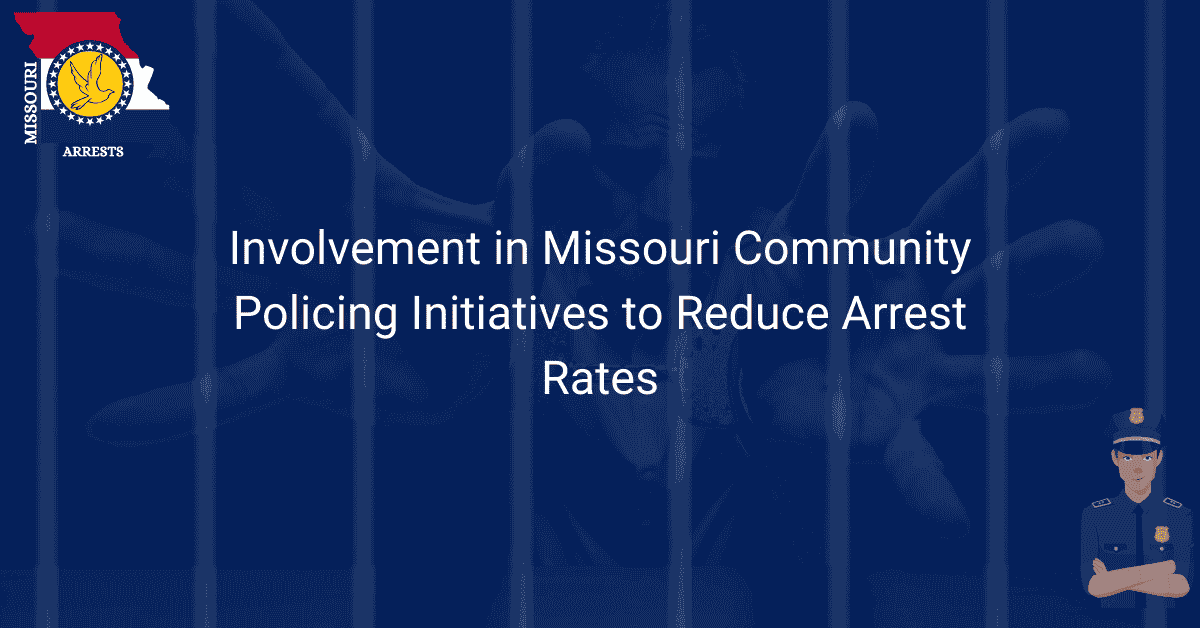Involvement in Missouri Community Policing Initiatives to Reduce Arrest Rates
Involvement in Missouri Community Policing Initiatives to Reduce Arrest Rates is crucial for fostering positive relationships between law enforcement and residents. By implementing community policing strategies, officers can work collaboratively with community members to address underlying issues that contribute to high arrest rates. Through increased communication and trust-building activities, law enforcement can better understand the needs of the community and tailor their approach to reduce unnecessary arrests.
Community policing initiatives in Missouri focus on proactive problem-solving and prevention rather than solely relying on reactive measures. By engaging in dialogue with community leaders and residents, law enforcement can identify effective strategies to address crime and safety concerns. Through these collaborative efforts, the goal is to create a safer and more inclusive environment for all members of the community.
Importance of Community Policing Initiatives
Community policing initiatives are crucial for fostering trust and cooperation between law enforcement and the communities they serve. By promoting transparency, engaging in proactive problem-solving, and building strong community relationships, these initiatives help create safer and more cohesive neighborhoods. Moreover, community policing encourages citizen participation in public safety efforts, leading to more effective and sustainable crime prevention strategies.
Collaboration between Law Enforcement and Residents
Community policing emphasizes the importance of collaboration between law enforcement agencies and residents in a community. By working together, both parties can address issues, solve problems, and build trust. This collaboration leads to a more effective and efficient approach to crime prevention and public safety.
Focus on Proactive Problem-Solving
Community policing initiatives focus on proactive problem-solving rather than reactive responses to crime. By identifying and addressing root causes of criminal behavior, law enforcement can prevent crimes from occurring in the first place. This approach not only reduces crime rates but also improves the overall quality of life in a community.
Creating a Safer and Inclusive Environment
Community policing initiatives aim to create a safer and more inclusive environment for all community members. By engaging with residents, law enforcement can address concerns, build relationships, and promote a sense of belonging and safety. This inclusive approach helps to reduce fear of crime and improve community well-being.
Building Trust through Communication
Effective communication is key to building trust between law enforcement and community members. By engaging in open and transparent communication, both parties can better understand each other’s perspectives, address concerns, and work together towards common goals. Building trust is essential for the success of community policing initiatives.
Identifying Effective Crime Prevention Strategies
Community policing initiatives involve identifying and implementing effective crime prevention strategies tailored to the specific needs of a community. By analyzing crime data, collaborating with residents, and utilizing innovative approaches, law enforcement can develop strategies that address underlying issues and reduce crime rates.
Enhancing Safety for All Community Members
Ultimately, the goal of community policing initiatives is to enhance safety for all community members. By working together, law enforcement and residents can create a safer, more secure environment where everyone can thrive. This collaborative approach not only reduces crime but also strengthens community bonds and promotes overall well-being.
Frequently Asked Questions
Our FAQ section aims to provide comprehensive information on Involvement in Missouri Community Policing Initiatives to Reduce Arrest Rates. Here, you will find detailed answers to common queries related to this topic.
What is the significance of community policing initiatives in Missouri?
Community policing initiatives in Missouri play a crucial role in fostering positive relationships between law enforcement agencies and the communities they serve. By promoting collaboration, trust, and communication, these initiatives aim to enhance public safety and reduce crime rates.
How can community policing initiatives help in reducing arrest rates?
Community policing initiatives focus on proactive strategies such as problem-solving, community engagement, and building partnerships with local residents. By addressing underlying issues, promoting accountability, and implementing evidence-based practices, these initiatives can contribute to lowering arrest rates and promoting social justice.
What are some examples of successful community policing programs in Missouri?
Several cities in Missouri have implemented successful community policing programs, such as the St. Louis Metropolitan Police Department’s Neighborhood Ownership Model and the Kansas City Police Department’s Community Interaction Officers. These programs emphasize community engagement, problem-solving, and building trust to reduce crime and improve public safety.
How can individuals get involved in community policing initiatives in Missouri?
There are various ways for individuals to participate in community policing initiatives in Missouri, such as joining neighborhood watch groups, attending community meetings, volunteering with local law enforcement agencies, and advocating for policy reforms. By actively engaging with their communities, individuals can contribute to building safer and more cohesive neighborhoods.
What are the benefits of community policing initiatives for marginalized communities in Missouri?
Community policing initiatives can have significant benefits for marginalized communities in Missouri, including increased trust in law enforcement, improved access to resources and support services, and reduced disparities in policing practices. By prioritizing community input, inclusivity, and cultural sensitivity, these initiatives can help address systemic issues and promote equity and justice.







